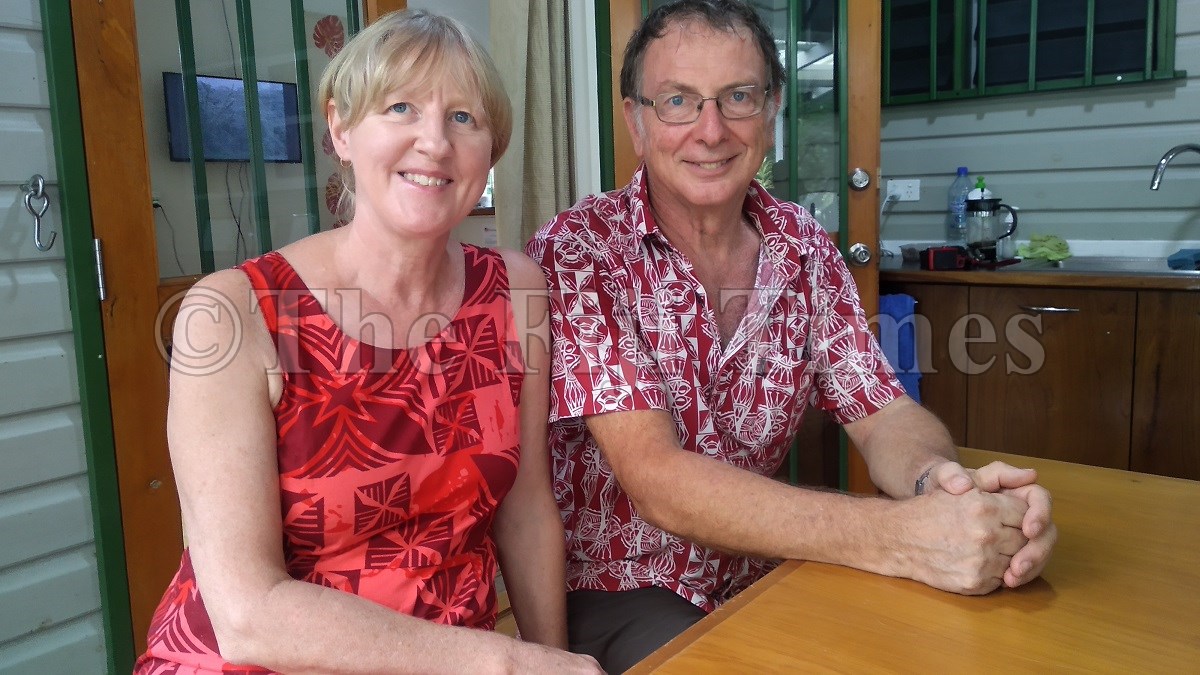IT’S locally produced with no artificial ingredients or additives and it’s contributing to economic empowerment of local farmers.
Known as KokoMana, this start-up company makes its chocolate by hand in small batches, at a small but modern facility, nestled in the forest of Savusavu facing the bay.
The products have been supplied to resorts and a few shops in town but mainly the chocolate is purchased by visitors to the farm.
They do a guided tour, learning how cocoa is grown and how it is processed into chocolate.
They taste the products as part of the tour and buy chocolate to take home with them.
Owners and founders of this company — Richard Markham and Anne Moorhead — purchased the piece of land, near Daku Resort, in 2012.
The following year, they started planting cocoa trees which now total nearly 500 standing on their two acres.
Under the shade of giant rain trees, they also planted useful native plant species and various fruit and nut trees, in an agroforestry system modelled on Pacific Island traditions.
But in 2016, Tropical Cyclone Winston knocked over much of the cocoa and many of the other trees, forcing the couple and their team to start again.
Mr Markham, a retired agricultural specialist who worked in different countries around the world assisting smallholder farmers, knew they had no choice but to rebuild the farm which supplies the basic ingredients for making KokoMana chocolate.
With the support of his wife Anne and a handful of workers, they recovered from the setback of TC Winston to build the successful farm and factory that is attracting increasing number of visitors.
The production of chocolate started in July 2019 and since then, the team has welcomed more than 240 tourist groups, many from overseas.
“Our chocolates are being sold locally in Savusavu only and we have no plans of selling beyond this area because we don’t want the products melting along the way,” Ms Moorhead said.
“It’s hard to make chocolate in this climate as we need to have a cool temperature and low humidity. So the room where we make the chocolate needs to be well insulated, double-glazed and airconditioned.
“The visitors who buy our chocolate also get to taste our products as part of the tour. Their feedback is very helpful in improving our products and developing new ones.”
In making good chocolate, Ms Moorhead explained that the fermentation and drying of cocoa beans were critically important.
“This is why we have worked closely with a few farmers to ensure that the beans are of really good quality and therefore suitable for chocolate-making.”
One of the farmers they work with is Manoa Raika of Naweni whose cocoa beans were recently recognised at an international competition in Paris as among the best 50 in world.
Mr Markham confirmed that the beans from Mr Raika were indeed the best beans they work with.
“We also buy cocoa pods from farmers around Natewa Bay and at the moment we prefer to buy the wet pods because we get to do the critical fermentation and sun-drying ourselves,” he said.
“If the cocoa industry is going to flourish in the North and throughout Fiji, we need to do more community-level processing and help producers to improve quality. So Manoa and I work closely with the Ministry of Agriculture.
“It’s encouraging to see the ministry encouraging and assisting cocoa farmers. I believe the whole process is equally vital, from planting the right varieties, through fermentation and sun-drying, to supplying the customer with consistently high-quality cocoa beans.
“We can provide a small market and buy cocoa pods or beans from farmers but only on a small scale. We hope that learning from us about the quality needed for chocolate-making chocolate-making will help producers to develop export markets in future.”
Apart from the cocoa and chocolate, the couple strongly believe in protecting the environment and it starts from their farm.
Having worked and dealt with agriculture and environmental issues around the world, Mr Markham believes everyone plays a vital role in protecting their surroundings.
“We do sustainable farming here, based on ecological principles, because the island environment is so fragile,” he said.
“Every time there’s an opportunity to grow new crops, farmers tend to cut
down trees to make way for planting and vital topsoil is washed away. We try to avoid that here.
“Like other farmers, we need to manage our environment ‘from ridge to
reef’. Planting trees and building soil fertility are our top priorities. So we
use this farm as a demonstration and advocacy for the value of agroforestry.”
That, he said, was even more important than making good chocolate.






